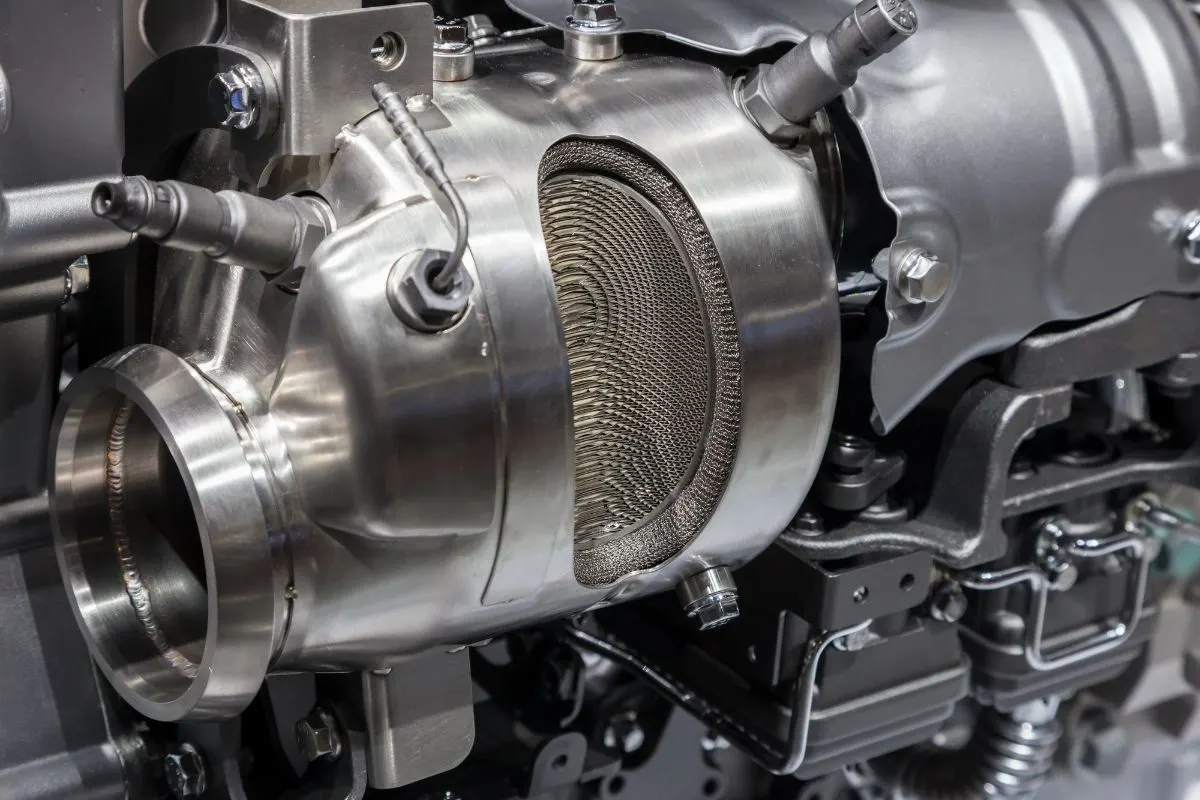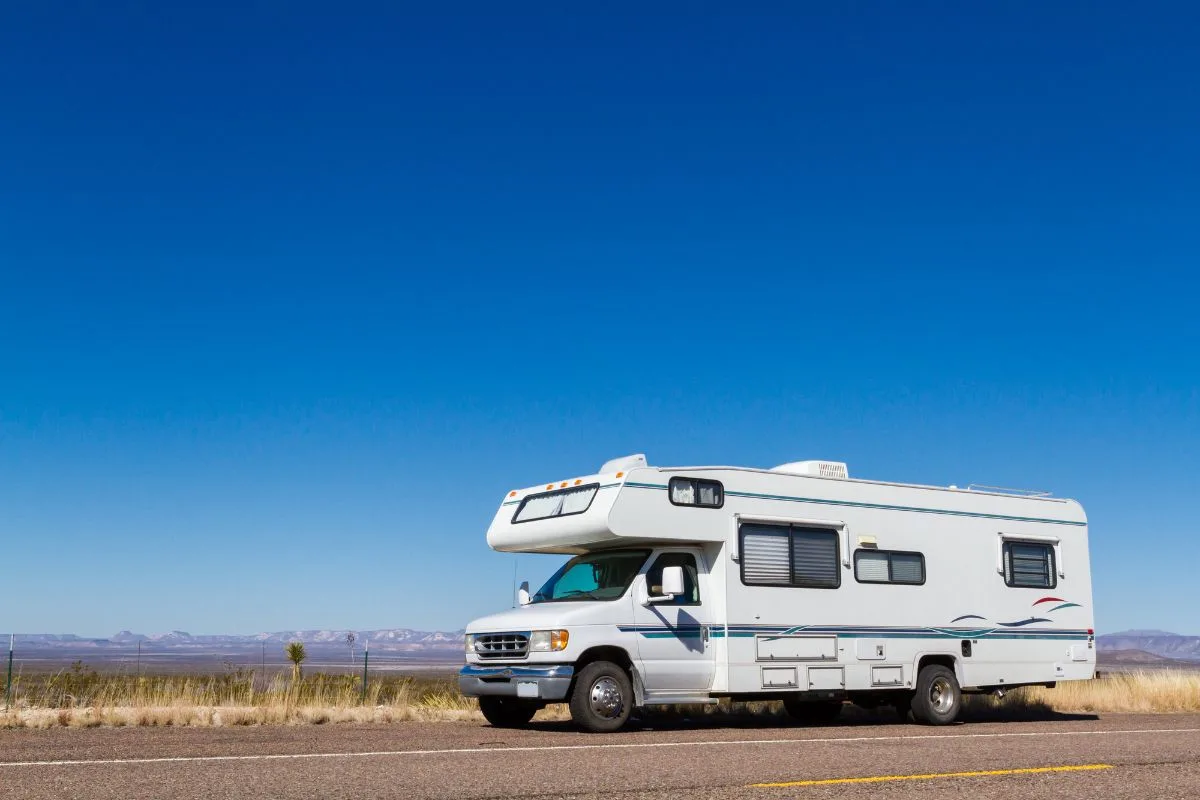
Here’s everything we need to know about our RVs catalytic converters, problems they may incur, maintaining them, and how to prevent theft (oh yes, it’s a thing).
Do RVs Have More than One Catalytic Converter?
The number of catalytic converters you have will vary according to the size as well as abilities of our RV. My Ford F150 towing vehicle has two. You’ll find one converter at either end of the car with this type of exhaust system.
When it comes to pollution management, the double cat system is not only a distinguishing advantage but also more efficient.
What Types of RVs Use Catalytic Converters?
As mentioned earlier, any RV that has an engine utilizes a catalytic converter. Catalytic converters are not required for vehicles that you tow, such as fifth wheels, since there is no engine in them.
Your RVs might have more than one catalytic converter. On Class A, B, and C rings connected to an automobile’s exhaust, you’ll find that catalytic converters come as a standard part of the vehicle.
Every car with an engine needs a catalytic converter since driving without one is dangerous and illegal by law. You may have a more complicated diesel Catalytic Converter based on the make and model of your RV.
What Issues Can Arise With My RVs Catalytic Converter?

Catalytic converters must endure at least eight years or 80,000 miles, according to the United States Environmental Protection Agency, EPA requirements. However, catalytic converters are designed to last a decade or 100,000 miles, but they might fail far sooner. It may malfunction or be permanently destroyed.
It’s common for a catalytic converter to fail because of a malfunction in another section of the RV or mechanism in the engine. Overheating, contaminated substrate or damage to the structure is the most prevalent cause of failure.
Catalytic converters can overheat if there’s too much unburned gas produced by a spark plug misfiring or an exhaust valve malfunctioning.
Overheating might also occur if:
- The oxygen sensor isn’t working properly.
- By excessive engine stress.
- A blown cylinder head gasket might allow the engine coolant to leak into the combustion chamber. Engine oil can block the catalytic converter, making it hard for emissions to pass through.
Catalytic converters, which are located under the hood of your vehicle, are vulnerable to damage from debris on the road. Catalysts can be harmed by leaded gas, although no North American countries utilize it.
How to Maintain my Catalytic Converter?

Since catalytic converters are not cheap, proper maintenance is important. To begin, use a catalytic converter cleaner regularly to keep it clean. That method helps to remove carbon deposits.
Additionally, you should perform regular maintenance on your automobile, including oil changes, filter replacement, and inspections. Avoid future harm by taking care of anything that has to be addressed as soon as feasible.
Check for these warning flags if you’re worried about the health of your catalytic converter:
- It’s tough to get started, and the noise level is higher than usual.
- The smell of rotten eggs.
- Gas mileage, acceleration, and power are all below-par.
Make sure you don’t keep your car idling for long durations. If you can, plan a couple of longer trips. At least twice per month, drive for a minimum of 30 minutes to ensure that your vehicle is operating at its ideal temperature.
Leaving your RV parked for an extended period can cause an accumulation of debris in your catalytic converter, increasing the risk of a blockage. You should take your campervan on lengthy excursions periodically to burn off whatever deposits are built up in your converter.
The next step is to clean your engine by using high-quality fuel-containing detergents and additives. Your engine and exhaust system will build up more deposits if you use low-quality fuel, which does not perform as effectively as more expensive fuel. You can achieve clean catalytic converters and longer vehicle life through the use of high-quality gasoline.
If you haven’t been performing routine maintenance on your catalytic converter and it is now malfunctioning, you have a few options. There are cleaners on the market that can help restore your converter to its former glory. Consider additional options if the first one doesn’t work out.
If your catalytic converter cannot be repaired, you may have to get a new one.
Do You Need A Catalytic Converter To Operate An Rv?

In the US, it’s illegal to operate an RV without a catalytic converter. Your RV will give a bumpy ride and may have an unpleasant odor. Damage to your engine will occur if your catalytic converter is installed and plugged in.
If all the signs mentioned under the maintenance section occur, take the RV to a repair shop immediately.
You can safely drive your RV to the repair facility without the catalytic converter. However, be reminded that driving without it, in general, is illegal in most jurisdictions. Your engine’s performance will also be lowered as a result. So it’s not advisable to do this.
Is It Possible For my RV Catalytic Converter to Get Stolen?
As with any vehicle, the catalytic converters of a motorhome are vulnerable to theft. Catalytic converters are a popular target for thieves. RVs are often left unattended for extended periods.
Catalytic converters can be sold to scrap metal dealers for hundreds of dollars since they include valuable metals like rhodium, palladium, and platinum in the coating of the ceramic structure
Catalytic converter-equipped RVs and mobile homes are easy targets for theft since they are often left in storage or unsupervised for long periods. Even a brand-new RV on the lot or in your driveway might have its catalytic converters removed.
A pro can steal it in less than ten minutes, and even less time if you’re an amateur. Due to the thefts, new restrictions have been and continue to be imposed. However, don’t worry too much, because there are ways to keep your RV’s catalytic converter safe from thieves.
RV Catalytic Converter Theft Prevention Tips

Security measures can vary depending on your financial situation and your goal to keep your property safe, including:
Place your vehicle in a well-lit and safe location, and be aware of high-theft areas, including parks and driveways.
Try to park in a location that is easily accessible and well-lit whenever possible. If you must park in a public lot, do it as close as possible to the building’s entrance or the nearest road. Close your garage when you’re not using your vehicle.
Stealing for a quick buck is made more difficult by this strategy. It is less likely that your RV will get stolen if you store your vehicle in an enclosed garage.
Keep an eye on your RV with a security camera. If you keep your RV in your driveway or garage, you may easily add security cameras. If not, look for a storage facility with video surveillance.
Attach the catalytic converter by welding. Security measures can be added to the converter to make it more difficult to snatch. In addition, removing a converter that has been soldered to the automotive frame is much more difficult. A skid plate has been installed over the exhaust system by certain users.
To deter a robber, install a security system that responds to vibrations rather than a loud alarm. While your RV is in storage, you can leave the alarm activated.

